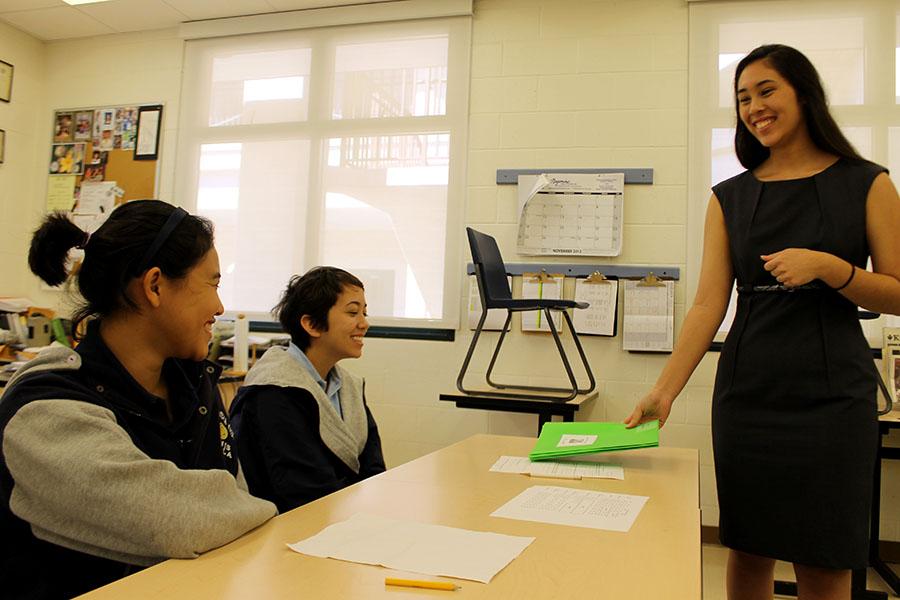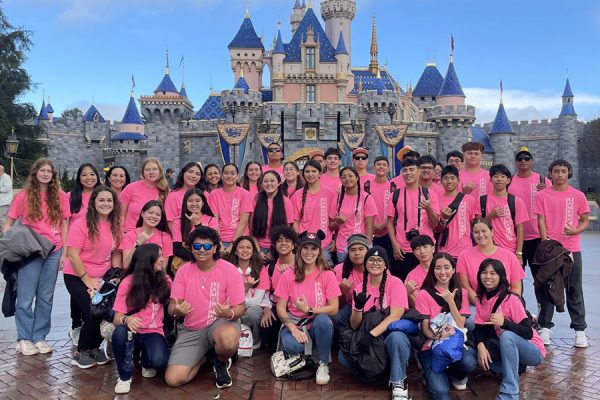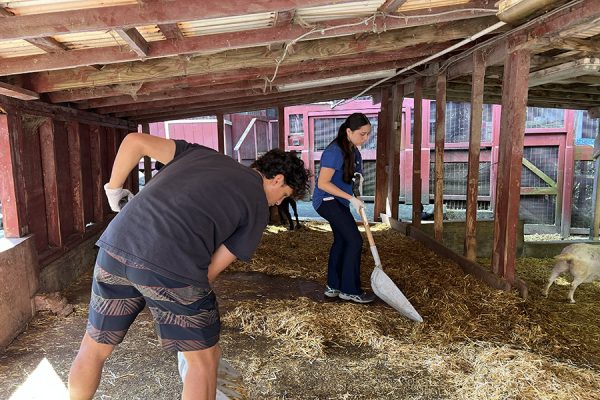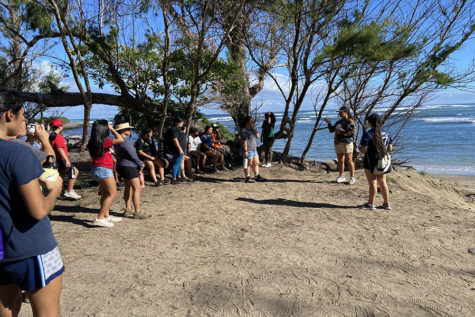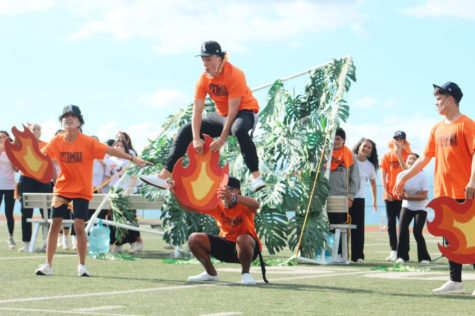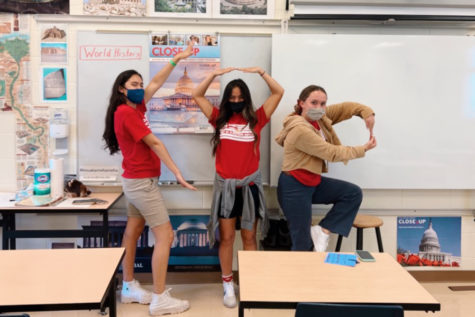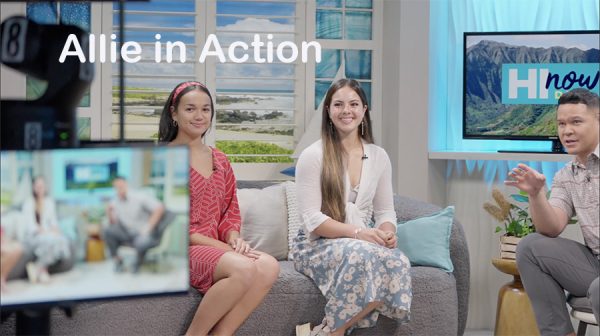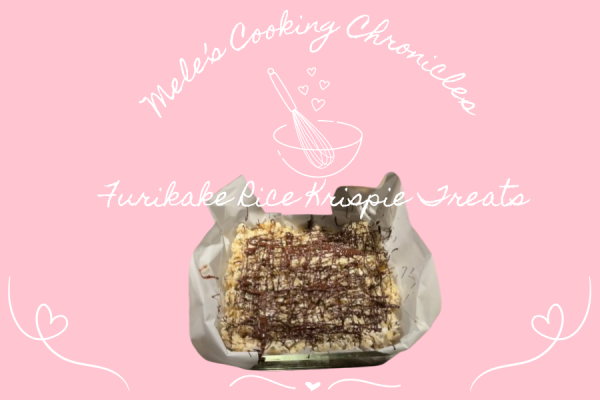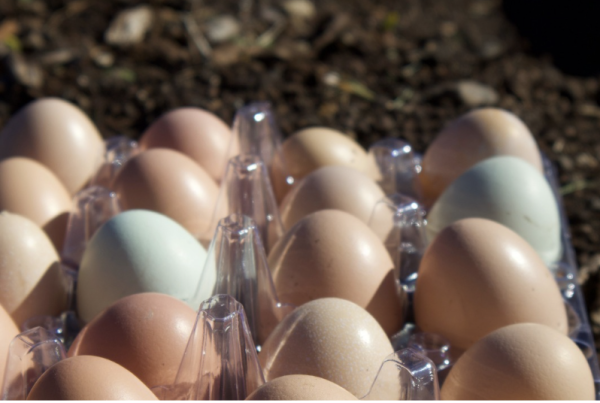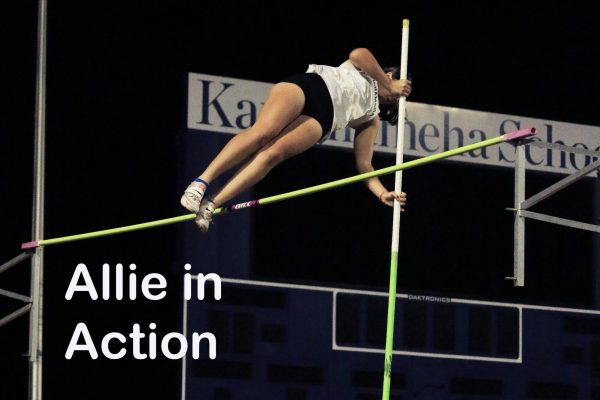Seniors thrilled to complete Hō’ike Nui presentations
Photo by Maile Sur
Malie Cathcart hands out a folder to juniors Madison Williams and Mikayla Lau, who watched her presentation. Hō’ike Nui presentations were held Nov. 12, at the high school campus.
After a year and a half of work, seniors at Kamehameha Schools Maui completed their Hō’ike Nui presentations today, in rooms all over the high school campus.
“It feels good to know that all the hard work has paid off, and we’re one step closer to graduation,” Lily Higashino said.
In order to graduate, students must complete Hō’ike Nui, or senior project. This includes four aspects, including the pass-or-fail presentation. Students start on their projects during the second quarter of their junior year.
The four aspects to it are the research paper, an internship, a product, and the presentation.
During the presentation, the students are required to meet a minimum time of 10 minutes. A panel of three to four judges score them on their subject knowledge and presentation skills.
“[The students] get an experience…planning and researching an event and pulling it all together to share with people,” said Mr. Leo Delatori, vice-principal and Hōʻike Nui coordinator.
“It’s also the personal satisfaction of what they did either for the community or for themselves,” he said.
Marley Duncan’s project centered on a topic that is close to her heart. Having a relative with special needs, Duncan connected her experiences with special needs children in mind.
She interned at Imua Family Services at the J. Walter Cameron Center. There, she helped children up to 3 years of age learn to do everyday things.
For her product, Duncan coached a Special Olympics soccer team. She went through a certification course on O’ahu that allowed her to then coach her own team on Maui.
There were district games to play, some against Kamehameha Maui’s own varsity players.
After district play, Duncan’s team went on to play on O’ahu, where they won bronze medals in their division.
Duncan said the experience taught her a lot about “responsibility and learning how to overcome fears.”
Malie Cathcart had another interesting project. It was on the value of hands-on learning for at-risk youth. Over the spring break of her junior year, she flew to Kaua’i to intern at the Waipā Foundation.
The foundation’s mission is “to educate people about becoming more sustainable and using the old Hawaiian ways,” she said. “I tied my learning from the business academy into my product through my internship.”
Cathcart created a teaching unit on kalo and worked with community children for three weeks. They learned about kalo through hands-on activities such as a Pictionary-style game about the types of kalo and cultivating their own kalo plants.
She had the students water and measure their kalo every time they went to program. Whoever behaved the best and grew the largest kalo would get a prize at the end. Her product was a joint program with Kamehameha Maui’s summer Hulili program.
“[It] helped me learn about running a business and sustainable living,” Cathcart said.
By the end of the program, she was overjoyed with the results. The students had all behaved well, and their kalo was also exceptional.
For their prize, Cathcart made meals of laulau, rice, lomi salmon, kalo or poi, and haupia for every student.
In the end, all the seniors were more than ecstatic to be done with the stress of Hō’ike Nui. Next step — graduation.

